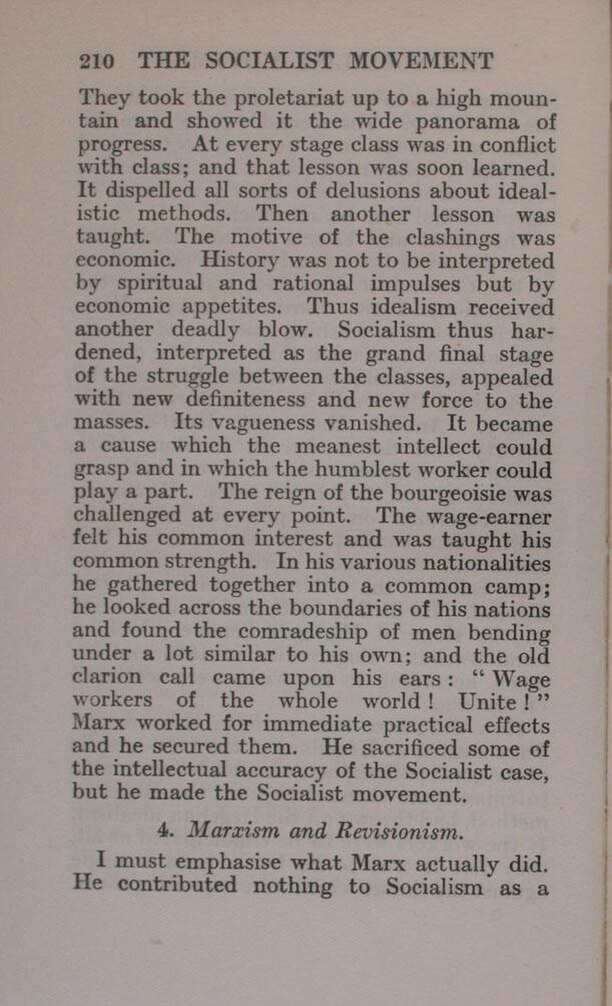They took the proletariat up to a high mountain and showed it the wide panorama of progress. At every stage class was in conflict with class; and that lesson was soon learned. It dispelled all sorts of delusions about idealistic methods. Then another lesson was taught. The motive of the clashings was economic. History was not to be interpreted by spiritual and rational impulses but by economic appetites. Thus idealism received another deadly blow. Socialism thus hardened, interpreted as the grand final stage of the struggle between the classes, appealed with new definiteness and new force to the masses. Its vagueness vanished. It became a cause which the meanest intellect could grasp and in which the humblest worker could play a part. The reign of the bourgeoisie was challenged at every point. The wage-earner felt his common interest and was taught his common strength. In his various nationalities he gathered together into a common camp; he looked across the boundaries of his nations and found the comradeship of men bending under a lot similar to his own; and the old clarion call came upon his ears: :Wage workers of the whole world! Unite!" Marx worked for immediate practical effects and he secured them. He sacrificed some of the intellectual accuracy of the Socialist case, but he made the Socialist movement.
4. Marxism and Revisionism.
I must emphasise what Marx actually did. He contributed nothing to Socialism as a
